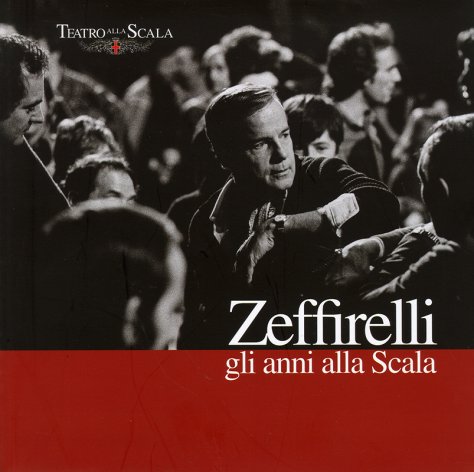Zeffirelli. La Scala years
by Vittoria Crespi Morbio
Essay by Vittoria Crespi Morbio, The Grandeur of a People’s Theatre
Essays by Dominique Meyer (Introduction), Riccardo Chailly (The humanity of the melodramma), Vittoria Crespi Morbio (Zeffirelli. La Scala years), Emilio Sala (Zeffirelli opera director between the stage and the screen), Paolo Besana (Interview with Plácido Domingo), Mattia Palma (Zeffirelli’s Legacy. Interview with Mario Martone), Andrea Vitalini (Franco Zeffirelli at La Scala), Vittoria Crespi Morbio (The Theatre, One Big Family)
Teatro alla Scala, Milano 2022
Italian edition, pp.128
The centenary of the birth of Franco Zeffirelli (Florence, 12 February 1923 – Rome, 15 June 2019) is an opportunity to shift our focus away from him as a personality of the media, of which he was a protagonist on a cultural level, and to investigate the sense of his work from a historical viewpoint.
Zeffirelli represented an example of operatic theatre that was never the preserve of a cultured or wealthy élite; he was, instead, capable of capturing a broader-based audience thanks to the spectacular nature of his productions and to his pioneering fusion of opera, television and cinema. He brought the opera out from its traditional niche to reclaim its rightful historical place as a commonly shared heritage. Indeed, the full sense of his work probably lies in this result. He was the first (and last) director of opera whose name was known to all Italians, even those who had never set foot in a theatre.
Zeffirelli’s association with La Scala covers more than half a century and is emblematic as it allows us to trace the stylistic development of the artist, who was schooled by Luchino Visconti, both on the stage and on the film set, but who quickly shifted from his model to follow his own personal line.
Zeffirelli’s opera has reached millions of people around the world. Certainly, no other opera director has ever captivated such a vast and varied audience.
